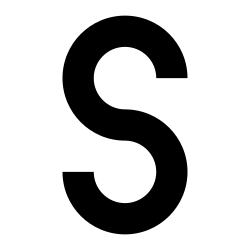Many readers like to read more than one book at a time. So is it okay for writers to work on more than one book at a time? Should you be juggling multiple projects, instead of focusing on just one book?
Balls in the Air
I had to face this question myself, recently. As my Facebook followers know, I've been stuck on the last three chapters of my current project for quite some time now. I started re-reading the manuscript in an attempt to get the creative energies flowing again...and somehow found myself looking over all the research I pulled together for a different book project that I started and stopped (in favor of my current work, ironically).
As I looked over the materials, I got all excited about the project all over again. I started thinking about the ending, a sure sign that I'm looking forward to working on a project, and had to keep reminding myself that I already have a book to work on.
Which is exactly why I say no to juggling multiple book projects. As an indie author, I've already got a lot of stuff to do. Blogging, book promotion, forum reading...it takes me over an hour every day just to erase all the Twitter and Wattpad spam from my inbox. If you self-publish, you're already juggling. Why try to juggle separate casts, settings and plots while you're at it?
Working on two books at once is a good way to confuse yourself, stretch yourself way too thin...and keep yourself from completing either project. Hey, we've all been there. You get stuck working on a story, so you start another (or go back to an old project you quit long ago). You get into the writing groove again, and you get a lot of progress made on the new story. Then you feel guilty, and go spend time on the other. You pingpong back and forth until you exhaust yourself, finish neither, and start on yet a third story.
When you get used to juggling, it starts to become easy. You begin with simple, round balls. Then you get really good at it. So you add some bowling pins, which have to be tossed and handled with a bit more finesse. But then you master that, so you decide to turn things up a bit. You throw in something a little more dangerous. Before you know it, you're juggling four chainsaws at once and standing in a flaming ring of fire. It was all so simple in the beginning. All you wanted to do was entertain. Now, you're one wrong breath away from totally severing your hands.
Juggling multiple projects doesn't work. If you get stuck on a story, it doesn't mean you should immediately abandon that story. Take a break from it -- and from writing stories -- and see how you feel then. Re-read a little of it, and see if you feel like continuing the plot after all. Staying focused on that world is the most effective way to get the project completed.
But if you do get excited about your next project or a different story idea, use it. I looked over my materials for a different book, and I'm really eager to start writing it. This gave me the motivation I needed to sit myself down and get to work on my current project...and I'm happy to report that I now only have two chapters to complete. I am going to write that next story...but I've got to finish this one first. Juggling has a way of getting really dangerous.

























